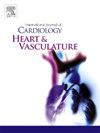睡眠时间、日间小睡、睡眠障碍与缺血性心脏病之间的因果关系:孟德尔随机化研究的系统回顾和荟萃分析
IF 2.5
Q2 CARDIAC & CARDIOVASCULAR SYSTEMS
引用次数: 0
摘要
缺血性心脏病(IHD)是一种死亡率和致残率都很高的疾病。许多研究已经证实了IHD和睡眠之间的显著相关性。本研究旨在评估现有孟德尔随机化(MR)研究的质量,并整合研究结果,概述睡眠模式与IHD之间因果关系的最新证据。我们对PubMed, Embase和Web of Science进行了全面的搜索,以确定与IHD和睡眠相关的MR研究。纳入了从数据库建立到2024年9月9日的研究。在数据提取之后,我们进行了严格的质量评估和荟萃分析。质量评估通过孟德尔随机化(STROBE-MR)指南加强流行病学观察性研究报告进行。最后,我们纳入了13篇文章。根据质量评价,纳入文献的总体质量为中等。荟萃分析显示,短睡眠时间(≤6小时,OR:1.22[1.16,1.28]; P < 0.001, I2 = 46.7%)、白天午睡(OR:1.63[1.26,2.12]; P < 0.001, I2 = 0.0%)和睡眠障碍(OR:1.44[1.29-1.60]; P < 0.001, I2 = 85.4%)与IHD呈正相关,而延长睡眠时间对IHD有保护作用(OR:0.77[0.71,0.83]; P < 0.001, I2 = 0.0%)。这些发现显示了睡眠对IHD的影响。睡眠时间短、白天打盹和睡眠障碍会增加患IHD的风险,而延长睡眠时间则有利于降低患IHD的风险。本文章由计算机程序翻译,如有差异,请以英文原文为准。
Causal association between sleep duration, daytime napping, sleep disorders and ischemic heart disease: A systematic review and meta‑analysis of Mendelian randomization studies
Ischemic heart disease (IHD) is a disease with high mortality and disability. Numerous studies have established a significant correlation between IHD and sleep. This study aims to evaluate the quality of existing Mendelian randomization (MR) studies and integrate the results to provide an overview of the latest evidence on the causal relationship between sleep patterns and IHD. We conducted a comprehensive search of PubMed, Embase and Web of Science to identify MR studies related to IHD and sleep. Studies from database inception to September 9, 2024 were included. Following data extraction, we performed a rigorous quality evaluation and meta-analysis. Quality assessment was conducted through the Strengthening the Reporting of Observational Studies in Epidemiology using Mendelian Randomization (STROBE-MR) guidelines. Finally, we included 13 articles in the study. According to the quality assessment, the overall quality of the included literature was moderate. Meta-analysis showed that short sleep duration (≤6h, OR:1.22[1.16,1.28]; P < 0.001, I2 = 46.7 %), daytime napping (OR:1.63[1.26,2.12]; P < 0.001, I2 = 0.0 %), and sleep disorders (OR:1.44[1.29–1.60]; P < 0.001, I2 = 85.4 %) were positively associated with IHD, while extending sleep duration had a protective effect on IHD (OR:0.77[0.71,0.83]; P < 0.001, I2 = 0.0 %). These findings show the effect of sleep on IHD. Short sleep duration, daytime napping and sleep disorders increase the risk of IHD, and whereas extending sleep duration is beneficial for reducing the risk of IHD.
求助全文
通过发布文献求助,成功后即可免费获取论文全文。
去求助
来源期刊

IJC Heart and Vasculature
Medicine-Cardiology and Cardiovascular Medicine
CiteScore
4.90
自引率
10.30%
发文量
216
审稿时长
56 days
期刊介绍:
IJC Heart & Vasculature is an online-only, open-access journal dedicated to publishing original articles and reviews (also Editorials and Letters to the Editor) which report on structural and functional cardiovascular pathology, with an emphasis on imaging and disease pathophysiology. Articles must be authentic, educational, clinically relevant, and original in their content and scientific approach. IJC Heart & Vasculature requires the highest standards of scientific integrity in order to promote reliable, reproducible and verifiable research findings. All authors are advised to consult the Principles of Ethical Publishing in the International Journal of Cardiology before submitting a manuscript. Submission of a manuscript to this journal gives the publisher the right to publish that paper if it is accepted. Manuscripts may be edited to improve clarity and expression.
 求助内容:
求助内容: 应助结果提醒方式:
应助结果提醒方式:


